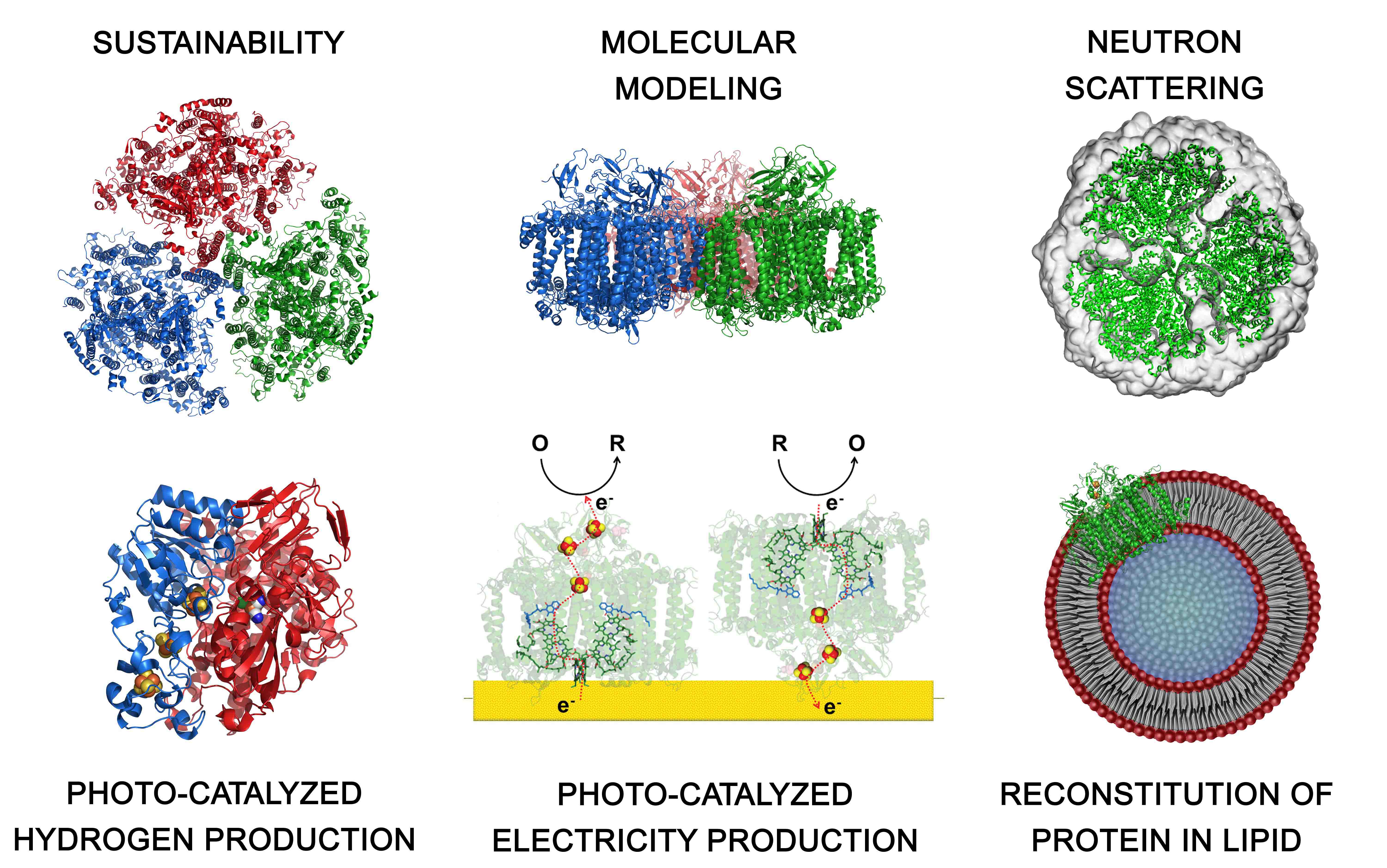The Laboratory for the Molecular Bioengineering of Photoactive and Redox Proteins

As interest in renewable energy sources has grown, increasing efforts have been focused on utilizing photosynthetic microorganisms for solar energy capture. Our research focus in this area is sustainable fuel production and photovoltaic applications of the protein complex photosystem I. The photosystem proteins of oxygenic plants, algae, and cyanobacteria generate a charge separation when exposed to light. This property can be used for capturing and converting solar energy into hydrogen or electrical energy. For both scenarios, we plan to use sortase-mediated ligation to link PSI to an oxygen-tolerant hydrogenase, an enzyme that produces H2 in vivo under low O2 conditions, and a conductive surface to produce hydrogen and electrical current, respectively, when these systems are exposed to light. Our experimental work will be complemented with molecular-level simulations to screen new complexes for efficient electron transfer and laser flash photolysis to evaluate the reaction kinetics of our systems.